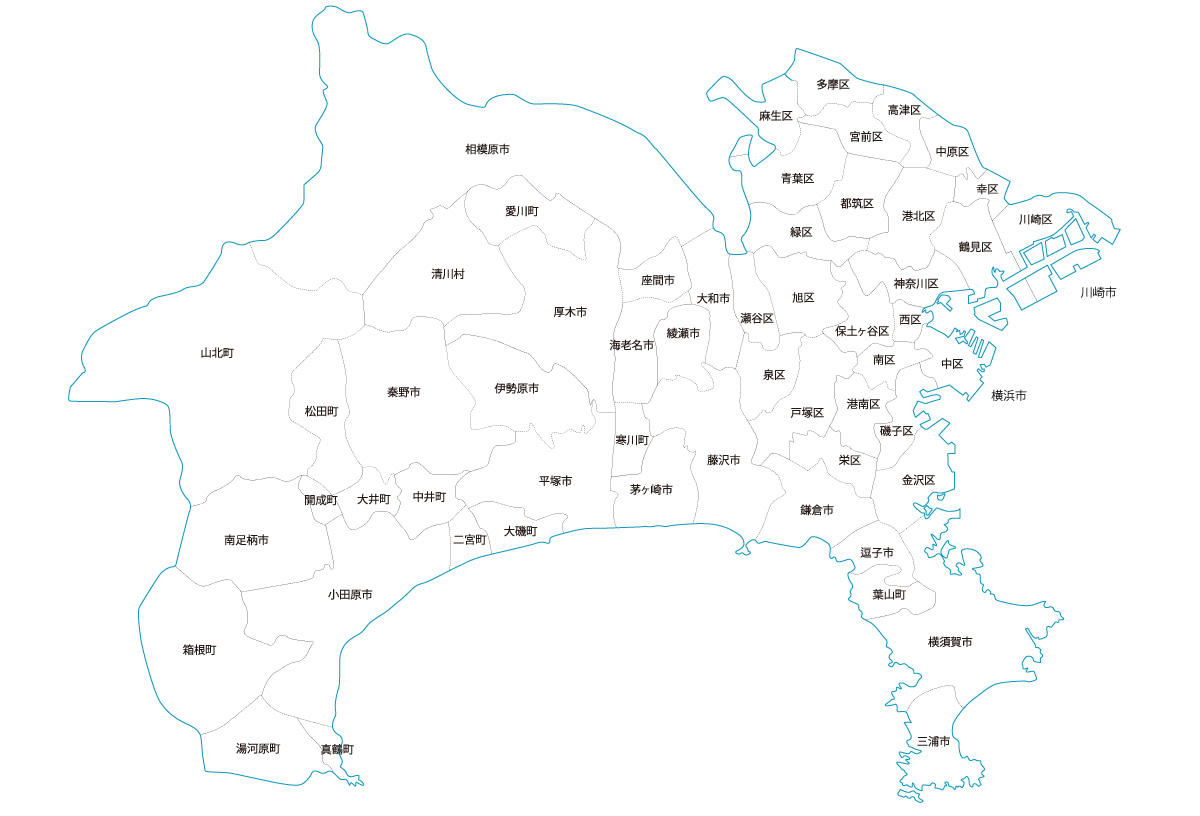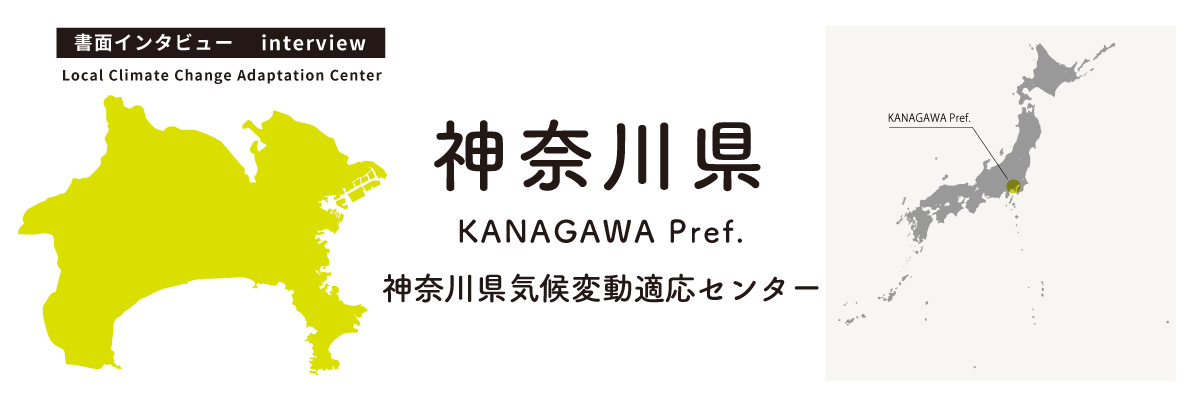Please tell us about Kanagawa Prefecture’s unique local features and characteristics, what led to the establishment of the Local Climate Change Adaptation Center, and what its organizational structure is like.
While Kanagawa Prefecture is one of the smallest prefectures of Japan in terms of land area, it has such diverse natural and social environment. As such, each of the regions that comprise the prefecture is thought to manifest the effects of climate change differently, from coast to mountains and cities to farming villages.
As the Kanagawa Environmental Research Center – the prefecture’s local environmental research institute – had been conducting scientific studies, etc. that could be applied to the formulation of solutions to various environmental issues and was deemed capable of performing the information gathering, analysis, and other related functions as set forth in the Climate Change Adaptation Act, the prefectural government officially designated the Center as its Local Climate Change Adaptation Center (hereinafter referred to as the “Center”) pursuant to the aforementioned Act in April 2019.
The Center is operated by a staff of five, some of whom have jobs at both of the two organizations. The position of Director at the Center is served by the Director of the Environmental Research Center, while the position of Technical Manager is served by the Manager of the Environmental Activity Promotion Department within the Environmental Research Center’s Environmental Information Division. Three employees from the aforementioned Section are also assigned as the Center’s staff members (of which two have jobs at both organizations).

Please tell us about the current activities of Kanagawa’s Local Climate Change Adaptation Center as well as its future plans.
For information gathering and organization, we have been observing the heat stress index and temperatures in addition to gathering information related to climate change and its impacts on the prefecture, and adaptation measures, so that we can constantly monitor summer heat trends and urban heat island phenomena.
As for our analysis and impact prediction tasks, we have been using the heat stress index and hyperthermia incidence data involving ambulance services to analyze hyperthermia risks that are present in the prefecture. In addition, we have been conducting interviews and other surveys of local stakeholders to elucidate their potential needs and issues relating to climate change impacts manifesting in each prefectural region.
For information dissemination, we have been creating climate change education materials that are designed to arouse interest in, and improve an understanding of, the problem of climate change among youth. While these education materials are produced mainly for use in classes at schools, they are also posted on the Kanagawa Climate Change WEB (https://www.pref.kanagawa.jp/osirase/0323/climate_change/index.html) for free public access and use. In addition, as part of our public awareness and education campaign targeting prefectural residents on the topic, we have been conducting a participatory survey entitled Kanagawa Heat Survey involving prefectural residents to gather data on extreme heat conditions. This campaign is intended to allow the participants to gain a correct understanding of what the heat stress index is and to start thinking about climate change as an issue that directly concerns them. In the campaign, the specific type of thermometer used to measure the heat stress index is loaned to participating prefectural residents that request it so that they can simultaneously measure the heat stress index in their respective vicinity. During FY 2021, a total of 100 residents took part in this measurement activity.
Please tell us about any unique approach that your Local Climate Change Adaptation Center is taking to effectively coordinate with other departments of the Kanagawa Prefectural Government and to facilitate adaptation by the prefecture and businesses, as well as any issues, etc. you are experiencing.
In terms of coordinating with other departments within the prefectural government, we have an interdepartmental conference comprised of sections that are concerned with climate change adaptation, so we have been periodically sharing relevant information through it. We believe one of our crucial objectives is to identify ways through which the Local Climate Change Adaptation Center should get involved with other departments’ activities that are being initiated on climate change impact and adaptation and serve our function. We are making conscious efforts to actively exchange information with the staff of each collaborating department so that we can understand their needs that the Center is expected to fulfill and use the information to improve our future activities.
In addition, we believe that the Center’s another crucial function is the provision of support to various municipalities and businesses within the prefecture with their implementation of adaptation measures. On this front, we are also intent on identifying what their needs are and disseminating necessary information, etc. in a similar manner to our approach within the prefectural government.
Please tell us what motivates you to do your current work and also your outlook on the future.
Climate change is a serious issue that has such long-lasting impacts in wide-ranging areas. Therefore, we recognize that the mission that the Center is tasked with is so critical.
Our interviews and other surveys of residents have indicated that many of them are indeed noticing the subtle changes in rising temperatures and how the rain falls, etc. in their everyday lives. However, they are apparently still finding it difficult to imagine how the impacts of climate change will manifest in ways that would be tangible to them, and what actions should be taken to address them. We will continuously facilitate close coordination and collaboration with various parties and organizations that are concerned with climate change and disseminate information in such a manner that will encourage the public to recognize climate change as their own business and help promote adaptation measures.
(Posted on February 8, 2022)


